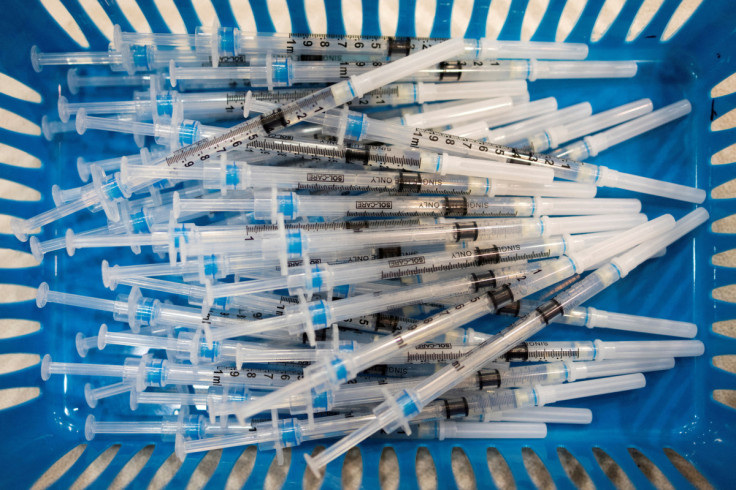Inhaled COVID-19 Vaccine Booster Gets Green Light In China. How Effective Is It?
KEY POINTS
- The vaccine can reportedly offer protection even "after just one breath"
- Clinical trials showed it is effective as a booster dose
- About 69.7% of the world's population has received at least one COVID-19 vaccine dose
China has given CanSino's inhaled COVID-19 vaccine an emergency use approval as a booster dose, making it the first nasal vaccine for the virus in the world.
The vaccine works by using a nebulizer to change the liquid vaccine into aerosols to be inhaled through the mouth, reported Fortune. Called Convidecia Air, the vaccine can offer good protection even "after just one breath," the company claimed.
The vaccine is said to contain the same ingredients as the company's liquid jabs (Ad5-nCoV), which, according to data from the World Health Organization (WHO), has an efficacy of 92% against severe COVID-19 and 58% against symptomatic disease.
During clinical trials, researchers found that using aerosolized Ad5-nCoV vaccine as a booster shot to two Sinovac jabs was not only safe, but also "persistently more immunogenic" than three Sinovac shots.
The mist protects the lining of the nose, as well as the upper airways, through which the virus enters, the company explained. Teams in other places such as the US. and U.K. have also been looking into nasal spray vaccines, BBC reported.
"The approval will have a positive impact on the company's performance if the vaccine is subsequently purchased and used by relevant government agencies," the company said in a statement, according to Reuters.
The vaccine, however, likely has a lot of competition in the market. There is also the question of whether it will be able to expand its market to other countries as well.
Such a vaccine that has to be inhaled may be a bit more appealing to many people who remain unvaccinated.
As of Sunday, just about 69.7% of the global population has received at least one dose of a COVID-19 vaccine, according to The New York Times vaccination tracker. That amounts to about 5.35 billion people all over the world.
There is also a wide variation in the vaccination rates of countries, with places like Samoa, Brunei and the United Arab Emirates having more than 90% vaccination rate, while others like Burundi (0.2%), Haiti (2.3%) and Yemen (2.4%) showing much lower numbers.
In the U.S., 79% of the population has had at least one dose, but only 33% has had an additional dose.

© Copyright IBTimes 2024. All rights reserved.






















